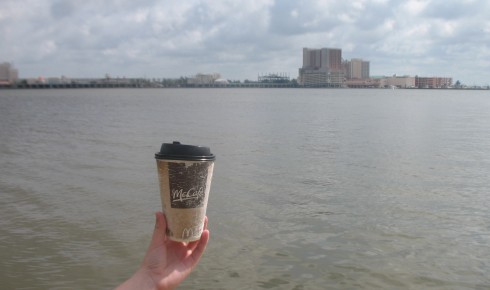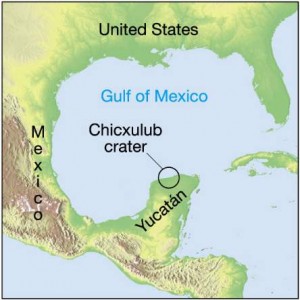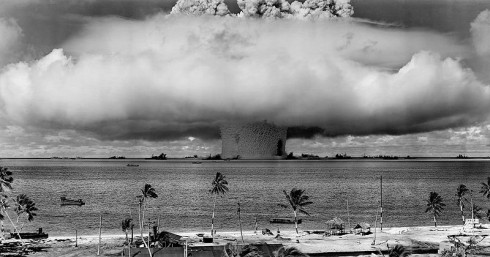
65 million years ago, an asteroid hit the Earth just off the Yucatan Penninsula, kicking up enough dust in to the atmosphere (and perhaps setting off supervolcanos) to lead to the extinction of the dinosaurs. Geologists mark this mass extinction event as the end of the Cretaceous period and the beginning of the Tertiary; it’s called the K-T boundary. Paleontologists see a rapid change in the forms of life fossilized in the rocks above and below the boundary. The element iridium, which is relatively common on asteroids, but rare on Earth, can be found in a thin layer of the fallout from the asteroid impact all around the world.

Well, the Earth’s going through another mass extinction event right now. In fact, even if humans were to go extinct right now, the remains of our cities and our impact on the global chemical cycles, will leave a distinct signature that geologists millions of years from now will be able to detect.
Geologists refer to the last 10,000 years, the period starting when the Earth warmed after the last glacial maximum, as the Holocene. This time period saw the emergence of agriculture, the rise of human civilization, cities, nuclear weapons, the internet. Now, given the enormous environmental changes we’re wrecking on the planet, some say we’ve entered a new geologic epoch that they’re calling the Anthropocene.
The question is: How long will it last?
Regardless of your philosophy, the recognition that we have entered a geologic age of humanity raises the obvious question of just how long such an age will last.
In the infamous KT boundary geologists can see evidence for a rather short-lived event that also reshaped the planet. Sixty five million years ago an asteroid struck the Earth, driving one of only five mass extinctions in the planet’s history. The loss of the dinosaurs turned out to be an opportunity for our mammal ancestors and led directly to our own age.
Since the Anthropocene appears to mark a sixth great extinction, one has to wonder what it will take for us to make it out of own era with civilization intact.
— Frank (2011): The Anthropocene: Can Humans Survive A Human Age?
